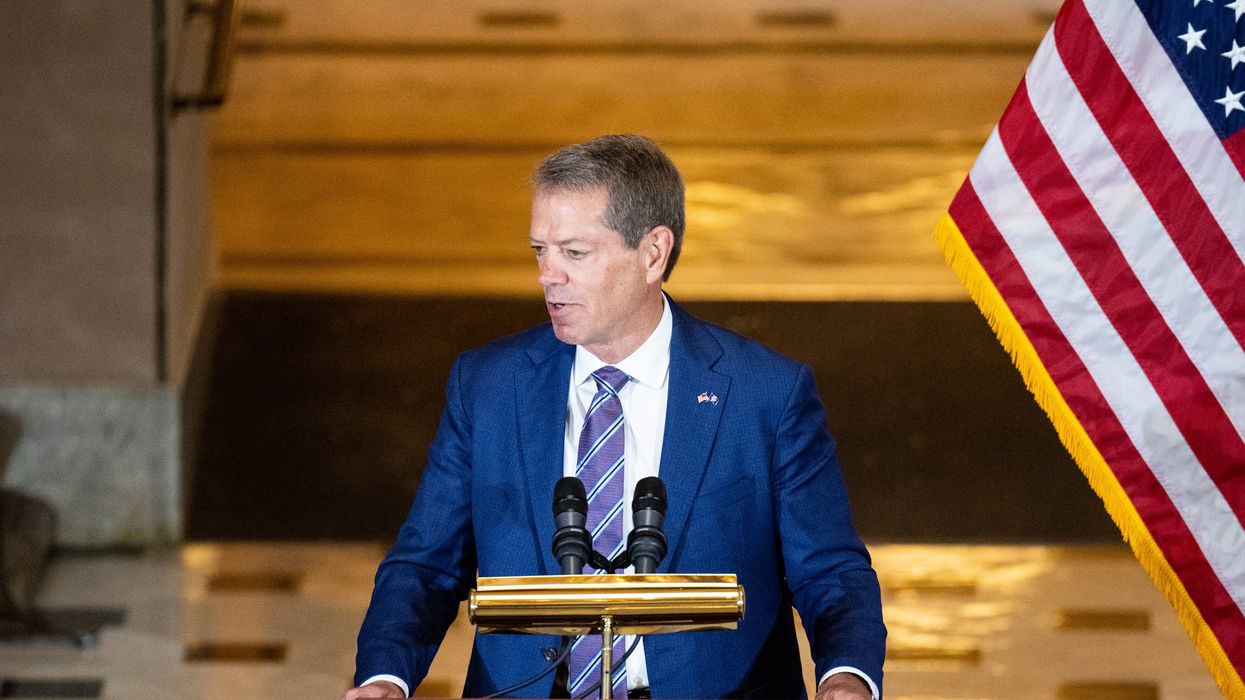McElravy is an associate professor of leadership at the University of Nebraska and a member of Scholars Strategy Network.
Gov. Jim Pillen’s recent decision to accept $18 million in federal funds for the state’s summer food program demonstrates the type of leadership rural Nebraskans are demanding from our state’s political leaders. As the Nebraska legislative session unfolds, our state leaders should follow in his steps and continue to compromise and find common ground.
In the most recent Nebraska Rural Poll, 86 percent of respondents agree or strongly agree that “compromise and common ground should be a goal for state political leaders.” However, given the polarized political environment across Nebraska and the country, there is political risk in changing course after taking a stance, referred to as flip-flopping, because politicians may be seen as incompetent. The courage to change course after initially refusing to apply for the summer food funding should be called out and applauded because this is the type of leadership that rural Nebraskans want to see from leaders.
Specifically, the governor’s actions seem to represent “ Both/And ” leadership, which requires that people recognize the complexity of issues and the tensions associated with different points of view. Those engaging in Both/And leadership will work to bridge the gaps in perspectives to find solutions that accommodate multiple stakeholders.
In this case, the governor was able to balance his stance of not supporting welfare while also meeting the needs of kids across the state, earning bipartisan praise for his efforts. Thanks to his decision, an estimated 150,000 kids will consistently have food on the table this summer.
Importantly, this type of leadership is not an individual endeavor and underscores the need to shift focus away from leaders and toward the broader idea of leadership. When we limit our focus to individual leaders, we ignore the reality that leadership is a process, involving leaders, followers and situational context.
A letter sent to the Nebraska Department of Health and Human Services by a bipartisan group of legislators in December, urging the executive branch to apply for this type of funding, illustrates the role of “followers,” or those not directly involved in the executive decision. By openly articulating their stance and providing clarity on the potential impact of the decision, they provided critical information to facilitate a more nuanced decision-making process. These legislators demonstrated courage to work across political boundaries, and these efforts, too, should be applauded as part of the leadership process.
Unfortunately, it seems all too often we retreat to political strongholds. Other data in the Nebraska Rural Poll demonstrated how polarized civil discourse feels today.
When asked, “Do you think Americans are more divided over politics than they were 10 years ago, less divided or are they about the same?” 94 percent of respondents indicated they thought we are much more or more divided today. That level of agreement on any topic is surprising.
A potential bright spot did emerge from the poll. Specifically, rural Nebraskans have significantly more faith that Nebraska’s political leaders will overcome differences to get things done at least moderately well (40 percent of respondents) than national political leaders (9 percent of respondents).
In 2021, both metropolitan and rural Nebraskans expressed moderate levels of confidence in the governor and the state Legislature in the Rural and Metro polls. It seems encouraging when collaboration and common ground can be established across these branches of government, and it may help improve confidence in these institutions.
The emerging hope is that more effective and efficient decisions lie ahead. Building trust takes time and effort, and perhaps the governor’s recent decision can serve as a foundation for trusting relationships that can facilitate more effective collaborations.
Nebraska is a big, diverse state with a variety of priorities. The’s state political leaders are charged with helping facilitate a prosperous future for all Nebraskans. To that end, our political leadership should continue to engage in compromise and common ground. It’s what constituents want, and our state will be best served by these efforts.
This article was first published in the Nebraska Examiner on March 6.



















Trump & Hegseth gave Mark Kelly a huge 2028 gift